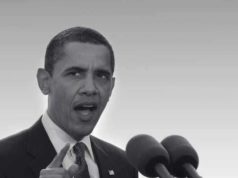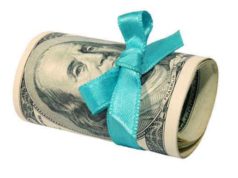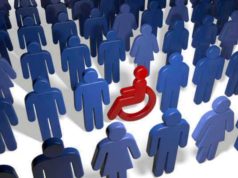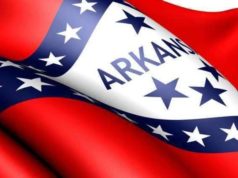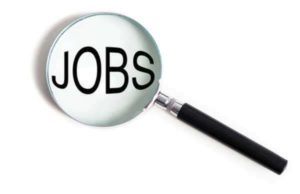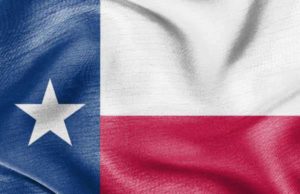
The Minimum Wage Landscape in Iowa: A Comprehensive Analysis
Introduction
The minimum wage is a hotly debated topic in the United States, with each state having the autonomy to set its own minimum wage rate. In this article, we will delve into the minimum wage landscape in Iowa, exploring its history, current rates, and the impact on workers and businesses. To ensure accuracy, we will rely on government resources and official data to provide an informed perspective on this crucial economic issue.
Historical Perspective
Iowa, like many states, has a minimum wage history shaped by both federal and state legislation. The federal minimum wage was first established in 1938 as part of the Fair Labor Standards Act (FLSA). Over the years, it has been adjusted several times to keep pace with inflation and rising living costs.
However, it’s essential to note that states have the authority to set their own minimum wage rates, which can be higher than the federal rate if they choose. In Iowa, the state minimum wage has often been closely aligned with the federal rate, but there have been some notable exceptions.
Minimum Wage in Iowa
1. Current Minimum Wage Rate:
As of my knowledge cutoff date in September 2021, Iowa’s minimum wage was $7.25 per hour, which is the same as the federal minimum wage. However, it’s crucial to check the most recent data, as states can change their minimum wage rates through legislation.
2. Tipped Minimum Wage:
Iowa, like many states, has a lower minimum wage for tipped workers. The state’s tipped minimum wage was $4.35 per hour in 2021. Employers are required to ensure that the combination of tips and the tipped minimum wage equals or exceeds the standard minimum wage.
3. Youth Minimum Wage:
Iowa also has provisions for a lower minimum wage for workers under the age of 18. As of 2021, the youth minimum wage was $6.25 per hour, and it applies to employees under the age of 18 during their first 90 consecutive calendar days of employment.
4. Future Adjustments:
Minimum wage rates can change over time. It’s essential to refer to the Iowa Department of Labor or the official state government website for the most up-to-date information on minimum wage rates.
Impact on Workers
1. Economic Challenges:
With Iowa’s minimum wage at the federal rate of $7.25 per hour, many workers in the state struggle to make ends meet. The cost of living, including housing, food, and healthcare, has risen over the years, making it difficult for minimum wage workers to cover their basic expenses.
2. Poverty and Income Inequality:
Low minimum wages contribute to income inequality and poverty. Workers earning the minimum wage often find themselves below the poverty line, which can lead to a host of economic and social challenges.
3. Efforts to Raise the Minimum Wage:
Advocacy groups, labor unions, and some policymakers in Iowa have pushed for an increase in the state’s minimum wage to address these challenges. They argue that a higher minimum wage can improve the standard of living for low-income workers and reduce poverty rates.
Impact on Businesses
1. Small Businesses:
One of the concerns raised by opponents of minimum wage increases is the potential impact on small businesses. They argue that higher labor costs can strain the budgets of small enterprises, potentially leading to job cuts or reduced hours for employees.
2. Competitive Advantage:
Conversely, proponents of a higher minimum wage argue that it can provide a competitive advantage for businesses. When workers are paid a living wage, they are more likely to stay in their jobs, reducing turnover costs for employers. Additionally, increased purchasing power among low-wage workers can stimulate local economies.
3. Regional Disparities:
It’s essential to consider that the economic impact of a minimum wage increase can vary depending on the region. Urban areas with a higher cost of living may have a different experience compared to rural areas with lower living costs.
Federal vs. State Minimum Wage
1. Federal Floor:
The federal minimum wage serves as a baseline, ensuring that no state can set a minimum wage below $7.25 per hour. However, states are free to establish higher minimum wage rates if they choose.
2. State Flexibility:
States have the flexibility to set minimum wage rates that align with their unique economic conditions and cost of living. In states like Iowa, where the cost of living is lower than in major metropolitan areas, policymakers often debate the necessity of raising the minimum wage.
Conclusion
The minimum wage in Iowa, like in many states, is a complex and contentious issue. While it currently aligns with the federal rate of $7.25 per hour, there are ongoing debates about whether it should be raised to address the challenges faced by low-income workers. The impact on businesses, particularly small businesses, is also a central part of these discussions.
As economic conditions and political priorities change, so too may Iowa’s minimum wage landscape. It’s crucial for policymakers, business owners, and workers to stay informed about the latest developments in this area, as it directly affects the economic well-being of thousands of Iowans.
Quick Guide to Iowa’s Minimum Wage
Minimum Wage in Iowa
There are multiple state and federal laws that apply differently to certain employees within the state. This article will discuss the different minimum wages in Iowa according to information provided under the IA Division of Labor. For more information about minimum wages in Iowa and procedure.
What is the Current Minimum Wage in Iowa?
The current minimum wage in Iowa is the same as the federal minimum wage: $7.25 per hour. The minimum wage in IA quite different for tipped employees. If an employee makes $30 per month or more in tips, the employer can pay an employee $4.35 per hour or more for a minimum wage in IA. If you work under the tipped minimum wage but make less than minimum wages in Iowa during a certain week, the employer is required to pay the difference.
Can an Employer pay a smaller minimum wage in Iowa for training employees?
If an employee has worked 90 days or less, an employer may pay a minimum wage in Iowa of $6.35 per hour. This type of minimum wage in IA is not the same as federal “training wage,” and if an employee has quit and then decided to return to work, the 90-day training wage does not start over again.
What Employers must comply with laws for minimum wages in Iowa?
Employers that gross at least $300,000 or more in sales or business per year must usually comply with laws for minimum wage in Iowa. There is also a large list of “named enterprises” that must regard laws for minimum wages in Iowa regardless of the business volume or earnings of that company. These enterprises include the following:
• public agencies
• hospitals and residential care facilities for the sick, elderly, mentally or physically handicapped individuals
• schools and preschools
• public transportation under state and/or local regulation
• most daycares
• construction companies, regardless of size
• laundry and dry cleaning
Daycares that consist of one employee in an in-home daycare with 5 or less children are not required to pay minimum wages in Iowa. There are some other exemptions for minimum wage in IA as well, and these exemptions include the following and more:
• an employer on a farm, a sharecropper, or land renter
• an employer who employs a high school or college student
• an employer of a newspaper carrier
If you believe an employer has paid you an unfair minimum wage in Iowa, employees are first encouraged to try and settle the dispute with their employer. If the dispute for minimum wage in IA is not resolved, refer to the following section.
Filing a Wage Claim for Minimum Wages in Iowa
If you believe you have been denied minimum wages in Iowa
You can either call the Division of Labor to file a claim at (800) 562-4692, or you can download a claim for electronically. It is important to regard all of the steps very closely listed on the website provided above before and while filing a claim for minimum wage in IA.



